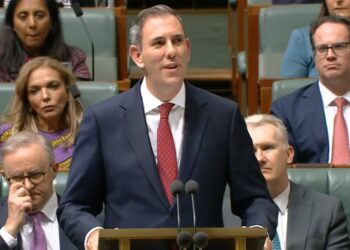Following considerable backlash over the changes that the first Delivering Better Financial Outcomes (DBFO) bill would make to section 99FA of the SIS Act, potentially requiring super fund trustees to check every statement of advice (SOA) before allowing member funds to pay for advice, Financial Services Minister Stephen Jones amended the bill before it passed Parliament last week.
The amendments omit language in paragraph 99FA(1)(a) which would require that the financial product advice in respect of which costs are charged is wholly or partly about the member’s interest in the fund; and repeal paragraph 99FA(1)(b) which would require that the amount charged does not exceed the cost of providing financial product advice about the member’s interest in the fund.
According to Association of Independently Owned Financial Professionals (AIOFP) chair of technical services Lionel Rodrigues, while the amended reforms are welcomed, they “fail to provide statutory clarity for consumers and the professional financial adviser”.
“The amended s99FA (SIS) now provides in s99FA(1)(a) that ‘the financial product advice is personal advice’. S99FA(1)(b) is absent from the legislation. However, s99FA(1)(c) attempts to provide clarity in so far as this provides for; ‘[The] trustees charge the cost in accordance with the terms of a written request or written consent of the member’,” Rodrigues said.
“The ambiguity arises as to the Explanatory Memorandum stating that trustee may continue to utilise robust risk-based assurance processes. This suggest that the role of trustees to continue to monitor the appropriateness of financial advice in relation to the ‘member’s interest in the fund’.
“It should be noted that commentary in the Explanatory Memorandum is not binding at law, nevertheless it is considered persuasive in the context of the legislation.”
Rodrigues noted that ASIC’s recent Report 781, in which the corporate regulator called on superannuation trustees to “renew efforts to protect members from unscrupulous operators amid evidence of inadequate oversight of advice fee deductions”, had compounded the confusion.
“There are no changes in the amended s99FA SIS for the regulator to change its position,” he said.
Other sections of the SIS Act
According to Rodrigues, s99FA is not the only part of the SIS Act that are relevant to the issue.
“It is also submitted that in attempting to implement reforms, revisions have not been made to the relevant complementary sections of the SIS legislation being s52 and s62 of SIS, to be consistent with the desired intent of the s99FA amendments,” he said.
“The performance of trustee duties in the ‘best financial interests of the beneficiaries’ is contained in s52(2) paragraph c of SIS. Furthermore, s52(3A) expressly states ‘payments to third parties must be in the best financial interests of beneficiaries’.
“It is argued here that obtaining high quality professional advice is in the best financial interests of members/beneficiaries. Section 52 SIS is silent as to the role or powers of the trustee in actually determining if payment to a third party, in the process of financial advice, should be assessed by a trustee.”
He added that it would have been “opportune when considering changes to the DBFO that this trustee role be clarified, and changes relevantly be made to s52 SIS”.
Rodrigues made a similar argument in relation to s62 of the SIS Act, which relates to the sole purpose test.
“In proposing substantive reforms, s99FA had capacity to align the provision of high quality professional financial advice consistent with the listed core purposes found in s62 SIS. There was an ability to provide statutory clarity in obtaining and paying for quality financial advice complementary to the stated aims of s62 in providing benefits to members,” he said.
“The above discussion arises as a function of the DBFO legislation following from Tranche 1 of the implementation of aspects of the QAR.
“Despite consultations with Treasury, the initial proposals inherent in the original DBFO legislation failed to address legislative ambiguities in reviewing advice and payment of advice fees by trustees upon direction of the member. The opportunity to harmonize ss52 and 62 of SIS, to provide definitive direction for the benefit of members, trustees and the professional financial adviser has been a significant oversight.”




Have to agree. The intent of Michelle Levy’s Quality of Advice Review was clear, everyone in parliament agreed to implement the recommendations as is, yet 18 months later and after much ‘consultation’ we have the same position as we started with.